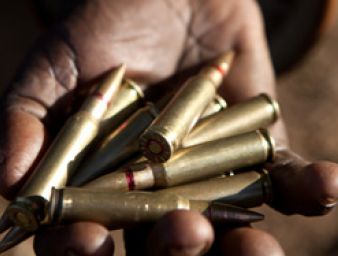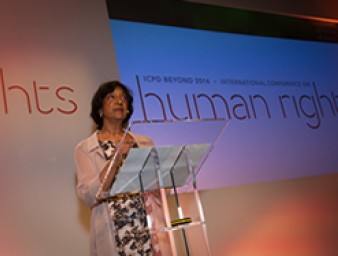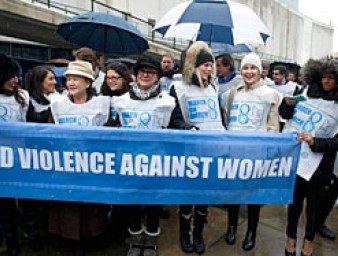Equality in family relations: recognizing women’s rights to property
19 April 2013

The gap between women and men trapped in the cycle of poverty has widened in the past decade affecting millions of women facing economic hardship after the dissolution of marriage or similar partnerships.
During its 54th session, the Committee on the Elimination of Discrimination against Women (CEDAW) adopted a General Recommendation, entitled Economic Consequences of Marriage, Family Relations and their Dissolution, on how to protect women’s equal rights to property upon divorce or death of their spouses.
“This general Recommendation brings the Committee’s approach to equality in the family into the 21st Century,” says Ruth Halperin-Kaddari, a CEDAW expert who helped shape the General Recommendation.
CEDAW says that women’s equal rights to property must be globally recognized regardless of its form, and in all world regions and legal systems.
Women tend to sacrifice their education and careers to have children, which prevents them from providing financial support. The Committee states that if they can no longer depend on their husbands for financial support and face discriminatory family laws that may force women out of their homes, they are at an increased risk of falling into the cycle of poverty.
The General Recommendation also addresses the discriminatory nature of many family laws, concluding that all family laws must adhere to the equality norms of the Convention. Some of these norms include the equal treatment of women and men as surviving spouses or partners; prohibit the disinheritance of the surviving spouse; and provide that rights to land should not be conditioned on forced marriage to a deceased spouse’s brother or any other person.
CEDAW recognizes the various forms of contemporary family relationships that give rise to property rights. These family relationships may include same-sex relationships, de facto unions, and registered partnerships. The General Recommendation also stresses that polygamy should be discouraged and prohibited. However, the economic rights of those women who are currently in a polygamous marriage must be protected.
According to CEDAW, property rights subject to fair distribution after the dissolution of marriage include pensions, social security payments and land. The General Recommendation also addresses the rights of widows. According to the General Recommendation, “Many States parties, by law or custom, deny widows equality with widowers as to inheritance, leaving them vulnerable economically upon the death of a spouse.”
The Committee recommends that States parties implement their obligations under Article 16 of the CEDAW Convention in light of the General Recommendation. According to Article 16, “States parties shall take all appropriate measures to eliminate discrimination against women in all matters relating to marriage and family relations and in particular shall ensure, on a basis of equality of men and women.” CEDAW will refer to the General Recommendation in its future dialogues with States parties.
“It addresses a root cause for the universal phenomenon of feminization of poverty,” Halperin-Kaddari said. “It indicates that States must fully acknowledge the many forms of women’s contribution to the economic well-being of their families and see to it that this contribution is fully recognized when the relationship ends.”
2013 marks the 20th anniversary of the World Conference on Human Rights, which led to the adoption of the Vienna Declaration and Programme of Action and the establishment of a High Commissioner for Human Rights. Its creation gave a new impetus to therecognition of human rights principles which has seen fundamental progress in the promotion and protection of human rights.
CEDAW is a committee or group of independent experts that monitors the implementation of the Convention on the Elimination of All Forms of Discrimination against Women. The Convention, adopted in 1979, is considered as an international bill of rights for women. The Optional Protocol to the Convention enables women to complain to the Committee about violations to the Convention and it also gives CEDAW the ability to conduct inquiries into abuses of women’s human rights in countries that become States parties to the Optional Protocol. The Committee has been instrumental for advancing women’s rights in the past 20 years such as contributing to the recognition of violence against women as a human rights issue with its landmark general recommendation No. 19, which defined gender-based violence against women as discrimination.
19 April 2013

VIEW THIS PAGE IN:



